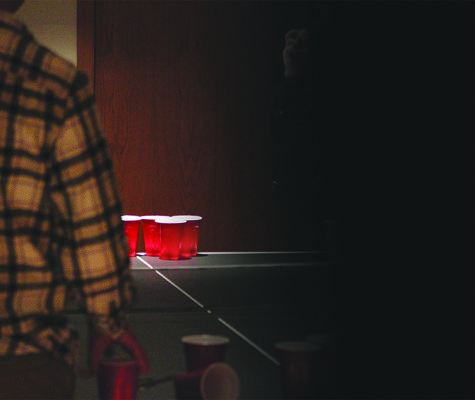Drinking tickets no longer required to be reported to GBN

As the varsity football team was losing to Hersey in 2012, current senior Mitch Schermerhorn remembered watching from the stands the multiple starters ineligible to play and feeling sorry for the other teammates.
“They were suspended for their first game for getting drinking tickets over the summer,” said Schermerhorn. “If the team had [the starters], I don’t know if they would’ve won, but it definitely would’ve made a difference.”
Made effective on Jan. 1, 2013, the Illinois General Assembly amended the Juvenile Court Act and passed House Bill 5602, removing the requirement that underage alcohol violations be reported to schools by law enforcement.
According to Illinois State Rep. Elaine Nekritz, the decision was made with intentions of limiting offenses reported to schools to only those determined to pose a real danger within students and staff on campus.
“This was done to place an emphasis on connecting students with resources to overcome their difficulties and not negatively impact their academic careers,” Nekritz said.
Jeanette Jordan, associate dean of students, heard about the change to the law months after the revision was made.
“Nobody knew about it for quite a while,” said Jordan. “It wasn’t something that was broadcast. When we did hear of it, it came as a surprise to both school and law enforcement.”
Jordan said she liked the previous reciprocal agreement between Glenbrook North and the Northbrook Police Department, and she did not see what the intent was with the change to the law.
Even though peer group advisor Penn Phillips said he understands the law is trying to protect the privacy of students, he said the revision makes it harder for the school to handle drinking tickets.
“We do need proof that a student is making bad decisions like drinking or doing drugs, and if we don’t have that proof, we can’t deal with that student,” Phillips said.
Justin Georgacakis, boys lacrosse head coach, said the former reciprocal agreement was a deterrent to students.
“If a kid is in the middle of the season, and they say, ‘I’m going to party because the school can’t touch me,’ … essentially, there is a little bit of truth to that,” Georgacakis said.
But, he said he believes there are larger repercussions for underage drinking, even though a student might not be suspended.
“The school might not know about what you did, but socially, academically, physically, you are taking that risk,” said Georgacakis. “You still harm your body in ways that we don’t know about. I think that is equally as big of a prohibitor as the code of conduct.”
Schermerhorn said he believes the school is not just trying to punish students, but rather help those who make a one-time mistake.
If reported to GBN, drinking tickets not only affect athletics but all activities. Theater Director Julie Ann Robinson said she does not believe the revision will change students’ drinking habits, but it will only affect their honesty with the school.
“It’s one thing for a kid to be busted, and they deal with the consequences at school,” said Robinson. “It’s another thing to offer up that they were busted, and I find it hard to believe that kids will out themselves voluntarily.”
Georgacakis said his main issue with the end of the reciprocal agreement is that it hurts the community aspect within Northbrook.
“Kids go to only one high school, there’s only one park district, there’s one police department, so when you’re able to share that information, it’s a community thing,” said Georgacakis. “It’s not about who can we bust. It’s that we are looking out for each other as a community, and not every community is like that. [Lawmakers] took away a little bit of that uniqueness that I think we had.”

